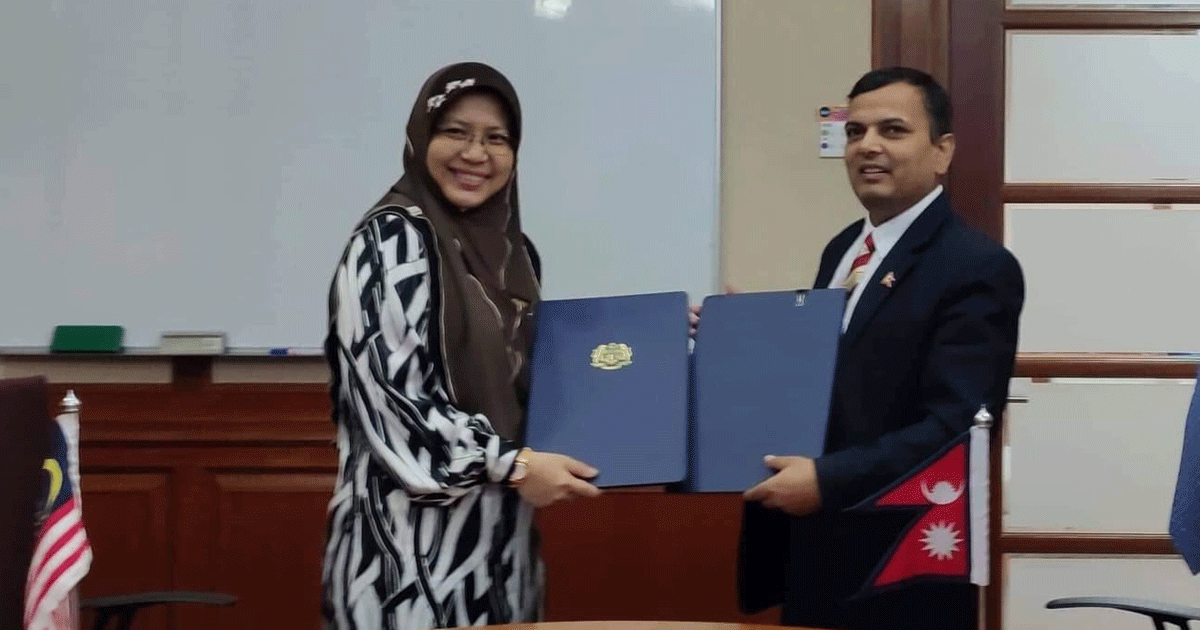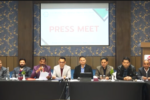KATHMANDU: A Memorandum of Understanding (MoU) on labor supply earlier signed between Nepal and Malaysia entered into force from Thursday.
The Malaysian government agreed to implement the MoU in a meeting of the bilateral technical committee held for three days in Kuala Lumpur of Malaysia. The meeting concluded today. The MoU was signed on October 29, 2018.
Senior joint-secretary at the Ministry of Labour, Employment and Social Security, Dr. Ram Prasad Ghimire who headed the Nepali delegation in the meeting said that the MoU officially entered into force from today with the Malaysian Government being agreed in writing to hire Nepali workers as per the MoU.
In accordance with the new provisions, all cost required to recruit Nepali migrant workers will be borne by employers and aspiring workers need not pay any charge for the same.
The MoU was in pending due to lack of willingness on the part the Malaysian government to implement it. The Malaysian government seemed not interested in summoning the meeting of the technical committee which had first met in Kathmandu. Joint Secretary Ghimire headed the Nepali team in the meeting while the Malaysian party was led by Betty Hasan, Chief of Policy Division of Human Resources Development Ministry there.
It may be noted that Nepal has already sent a list of 122 health institutions eligible for carrying out medical tests of aspiring Nepali workers to Malaysia as per the standard set by the latter.
What’s in MoU?
As per the MoU, the employers themselves will bear the service tax, cost of two-way air ticket, visa surcharge and the cost of medical check-up, security check etc. that is levied while sending workers to Malaysia. Provision has been made for not charging the additional charge that was taken from the Nepali workers.
The MoU also includes the provision which allows the Nepali workers employed in Malaysia to return home country for a maximum period of 15 days in case of the death of his/her close family member (father, mother, husband or wife, son or daughter).
The accident insurance and health insurance provisions applicable as per Malaysia’s laws in the case of workers at their workplace would be applicable in the case of Nepali workers as well.
A provision has been made requiring the employer to inform the Nepali Embassy in case of injury, mutilation or death of the worker in course of foreign employment. It would be the responsibility of the employer concerned to repatriate the dead body of the worker to Nepal.
The MoU states that the Government of Malaysia should provide the same level of protection to the Nepali workers as it provides the workers of other countries working in the same level, in accordance with the Labour Law of Malaysia.
The new MoU has fixed the contract period of the workers for two years. Before this, the contract period was three years. Provision has also been made for paying the remuneration of the workers within the 7th of every month through the worker’s bank account.
Likewise, provisions have been made ensuring the salary, allowance and facilities to the Nepali workers not less than the minimum salary fixed by the Malaysian government as well as extra pay, allowances and facilities for working extra time.









Comment